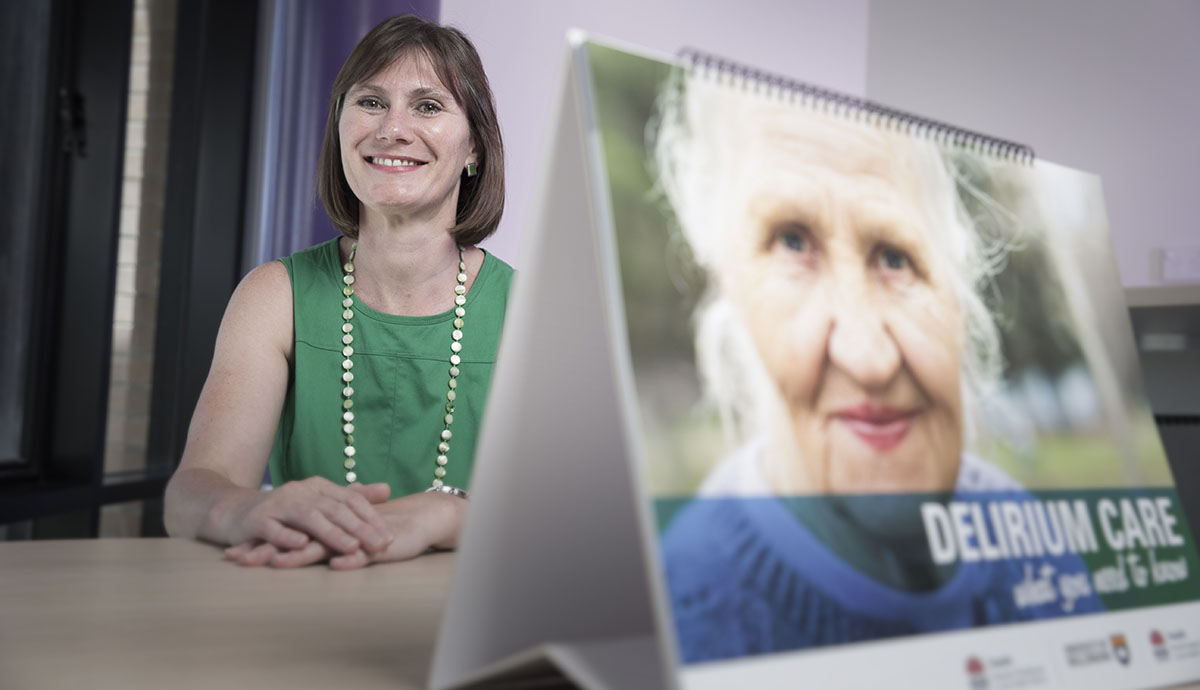July 5, 2017
Innovative Delirium Care Project launched
Initiative designed to support hospital practitioners in recognising and managing condition
An innovative new initiative designed to teach hospital practitioners about delirium care will be launched at St George Hospital, Kogarah, on Wednesday 5 July.
The Delirium Care Project uses a mix of role-playing, face-to-face learning and online education to raise awareness and understanding about delirium care and to improve the skills of clinicians working with patients with or at risk of developing delirium.
The initiative was developed by the Aged Dementia Health Education Research (ADHERe) program at the University of Wollongong (UOW) in collaboration with South Eastern Sydney Local Health District, Illawarra and Shoalhaven Local Health District and the Agency for Clinical Innovation.
Delirium is an acute reversible condition associated with many severe consequences. It occurs in up to 50 per cent of older patients admitted to hospital, yet often remains unrecognised.
A patient with delirium is more vulnerable to illness and at risk of a fall or serious injury, which could result in a life-changing relocation into a nursing home.
The Delirium Care Project uses an Objective Structured Clinical Examination (OSCE) – in which clinicians are presented with a simulated ‘real life’ clinical scenario – alongside conventional face-to-face and online learning activities.
Associate Professor Victoria Traynor from UOW’s School of Nursing said it was the use of patient scenarios that set this program apart from other training approaches.
“Many postgraduate education initiatives are limited to the delivery of face-to-face sessions, online resources or printed workbooks that focus on raising awareness and increasing knowledge about a particular topic,” Professor Traynor said.
“The challenge with this approach is that it is not clear whether the practitioner can actually use their new knowledge within the clinical practice.
“We're complementing traditional education activities with our clinical examinations to provide practitioners with an opportunity to implement their new understanding about delirium and demonstrate its use in a simulated practical situation.”
Professor Traynor said the health consequences of delirium were significant, but could be reduced significantly with improved awareness.
